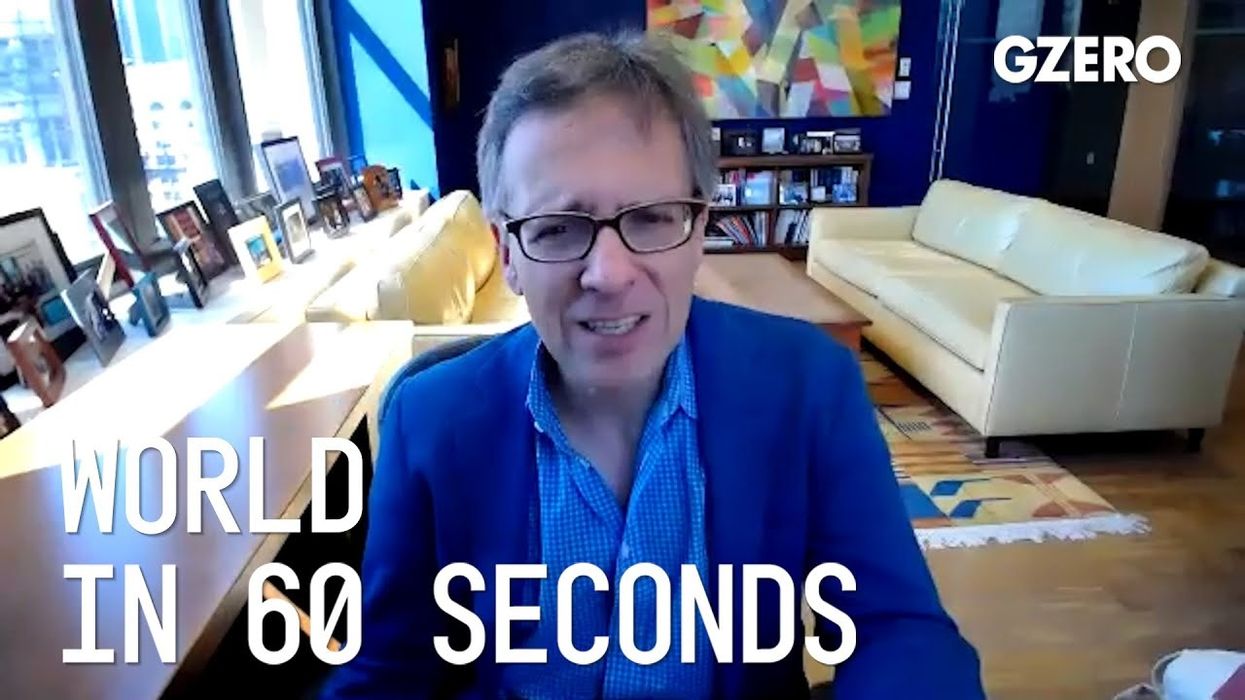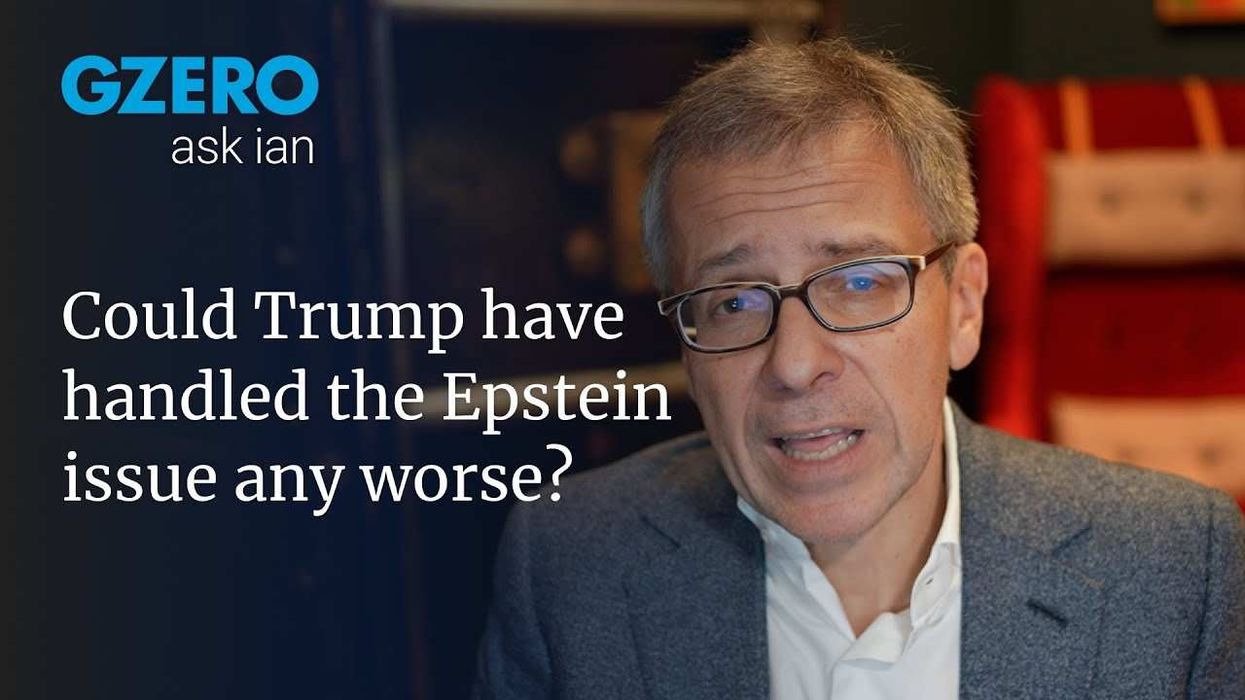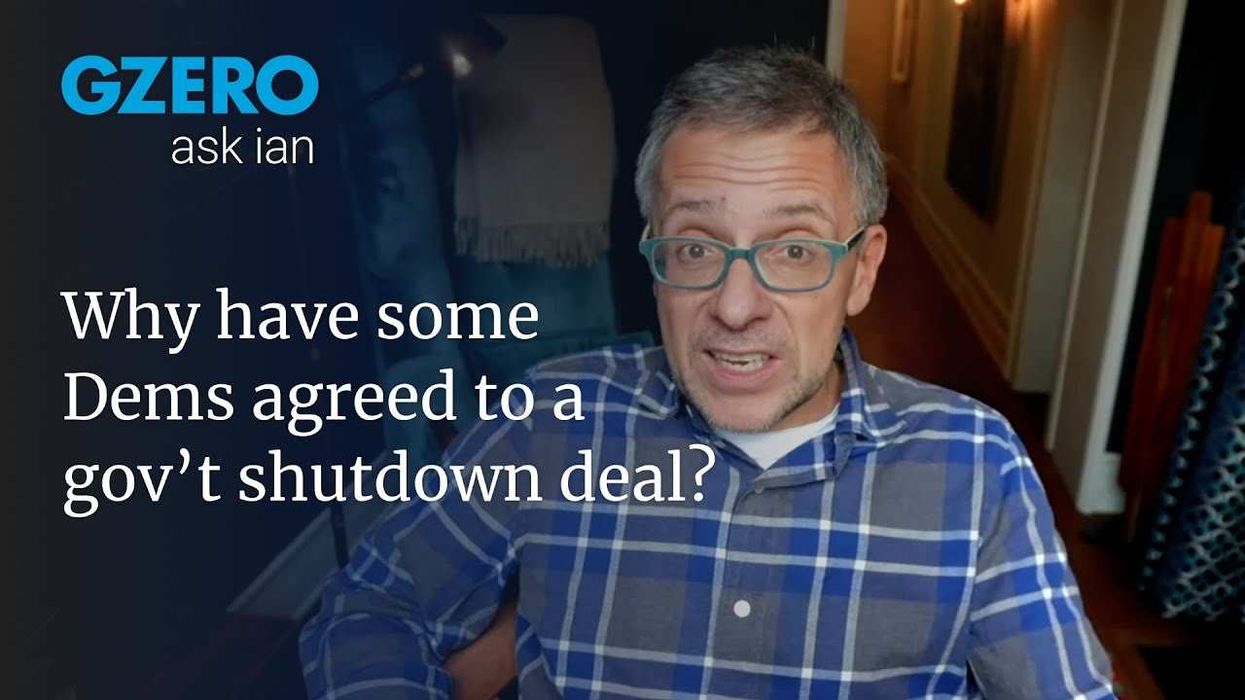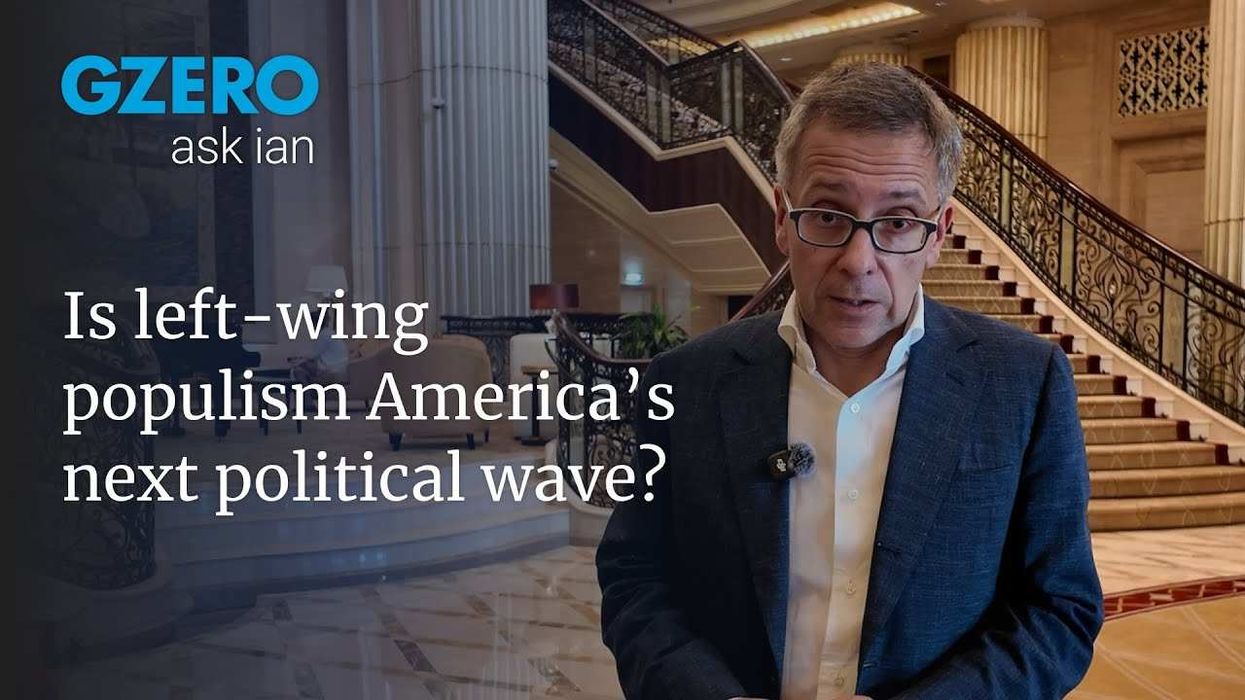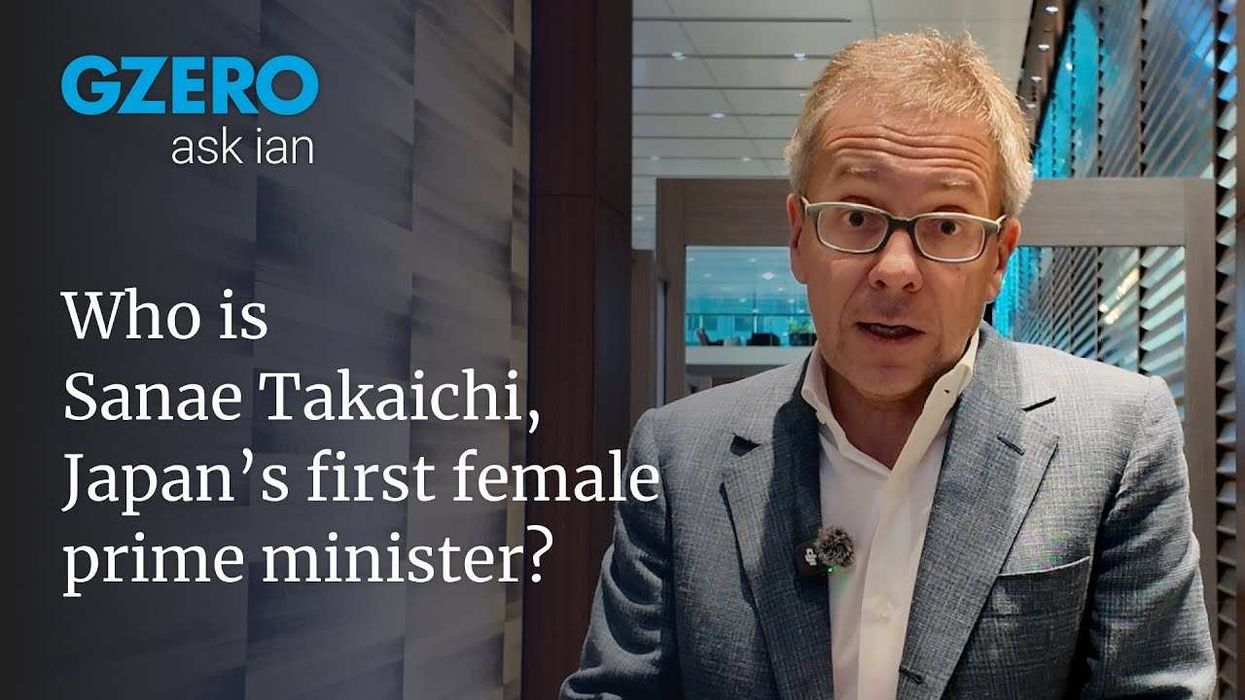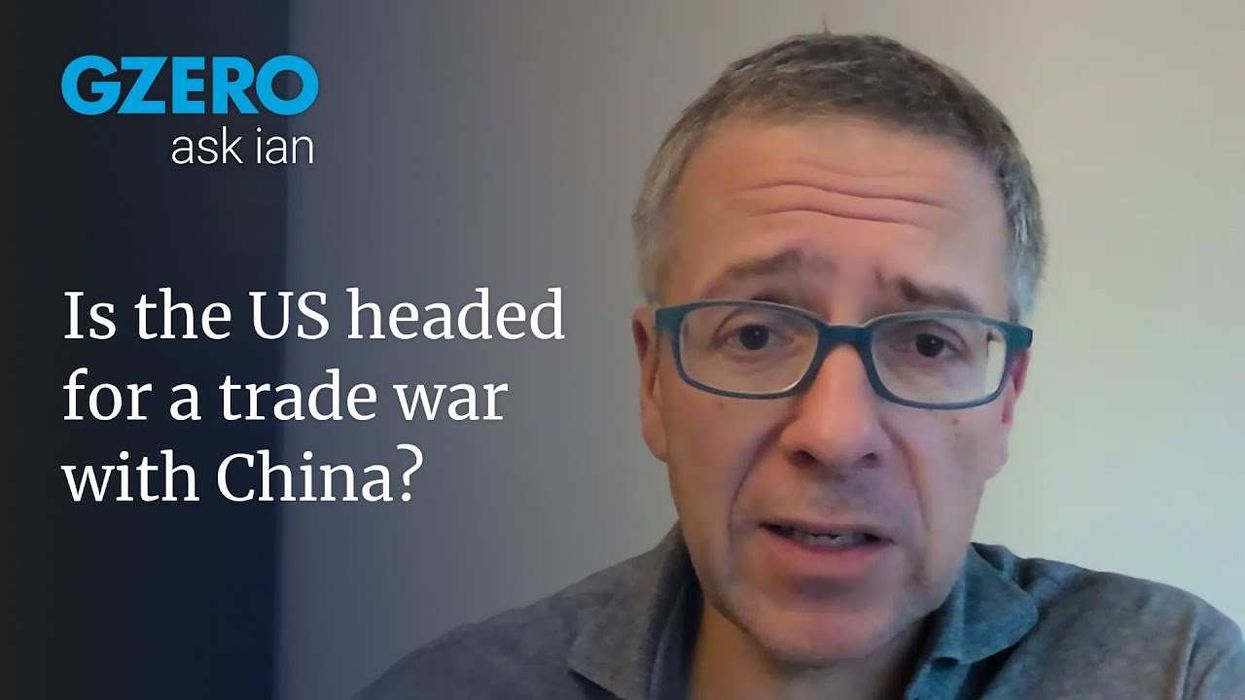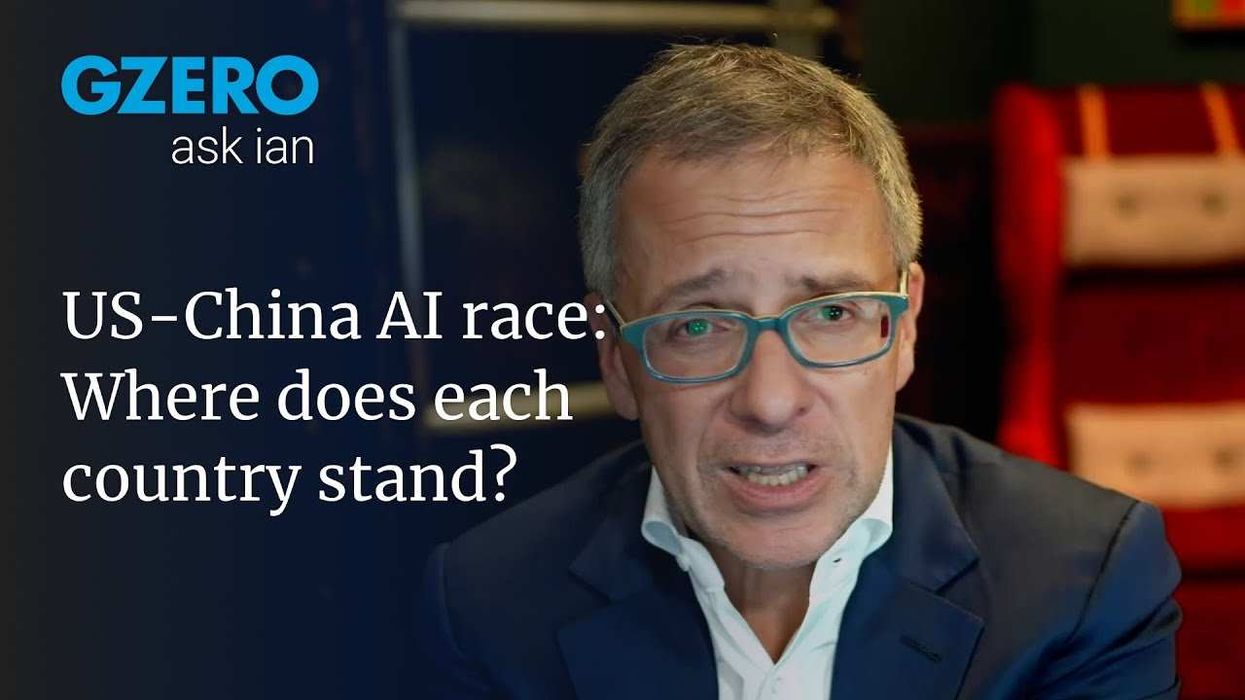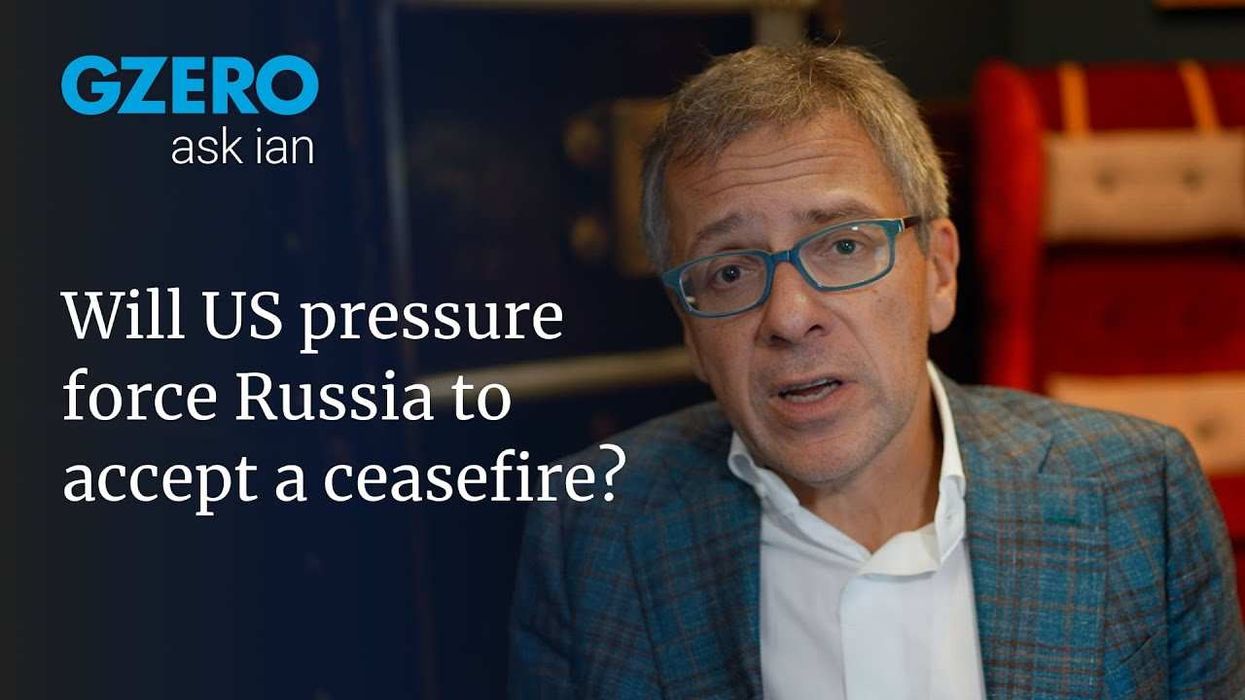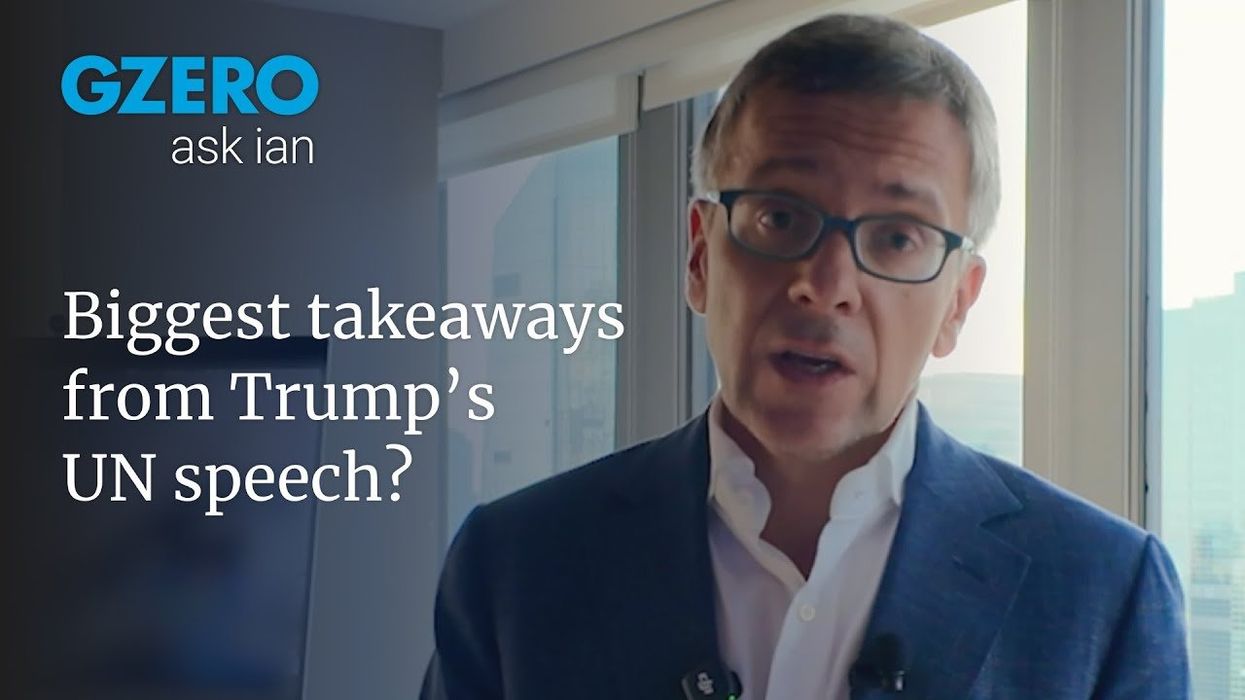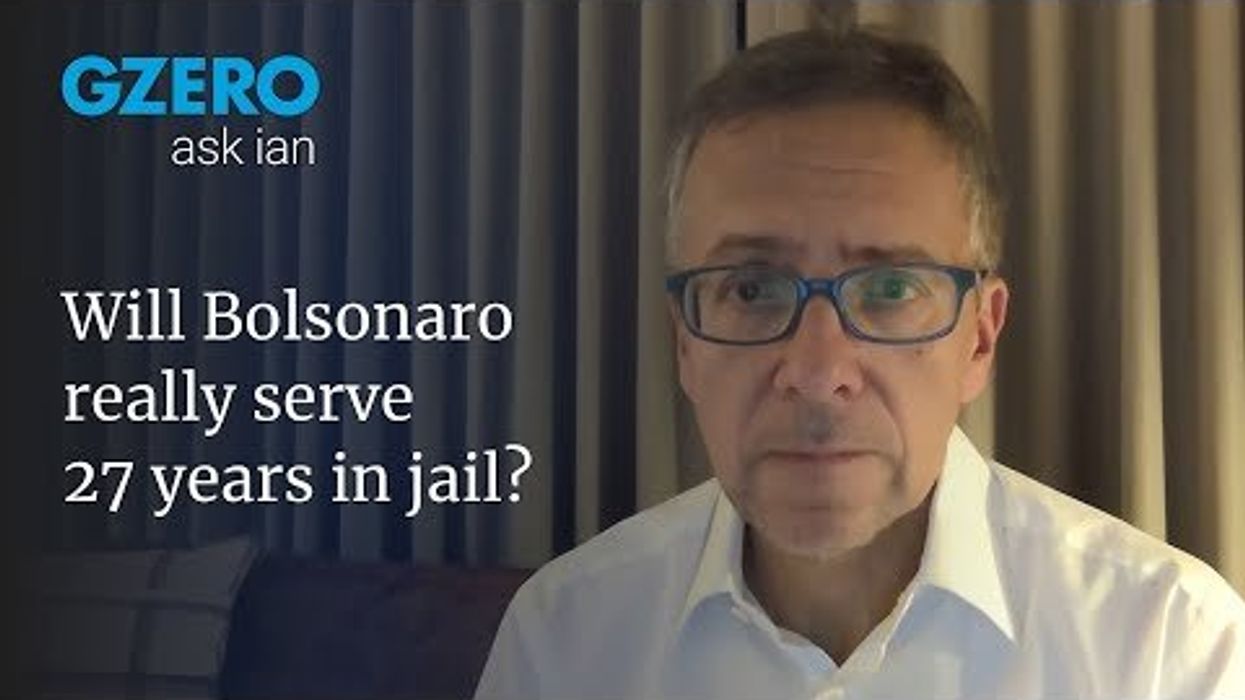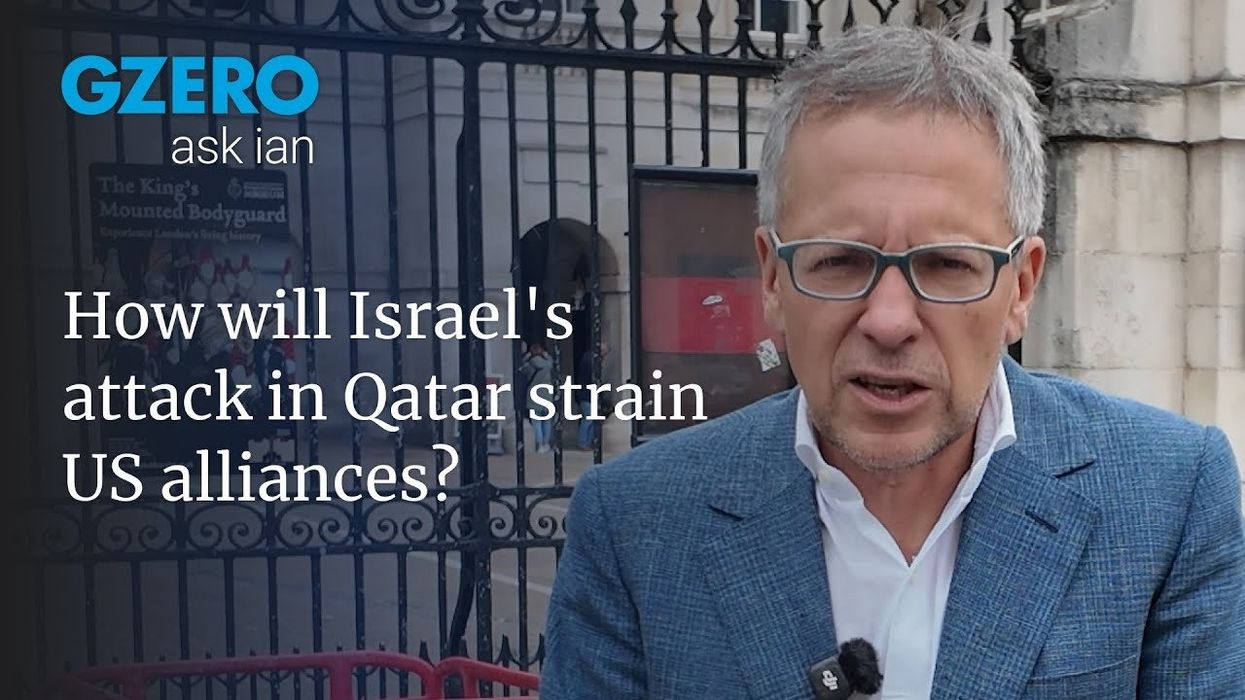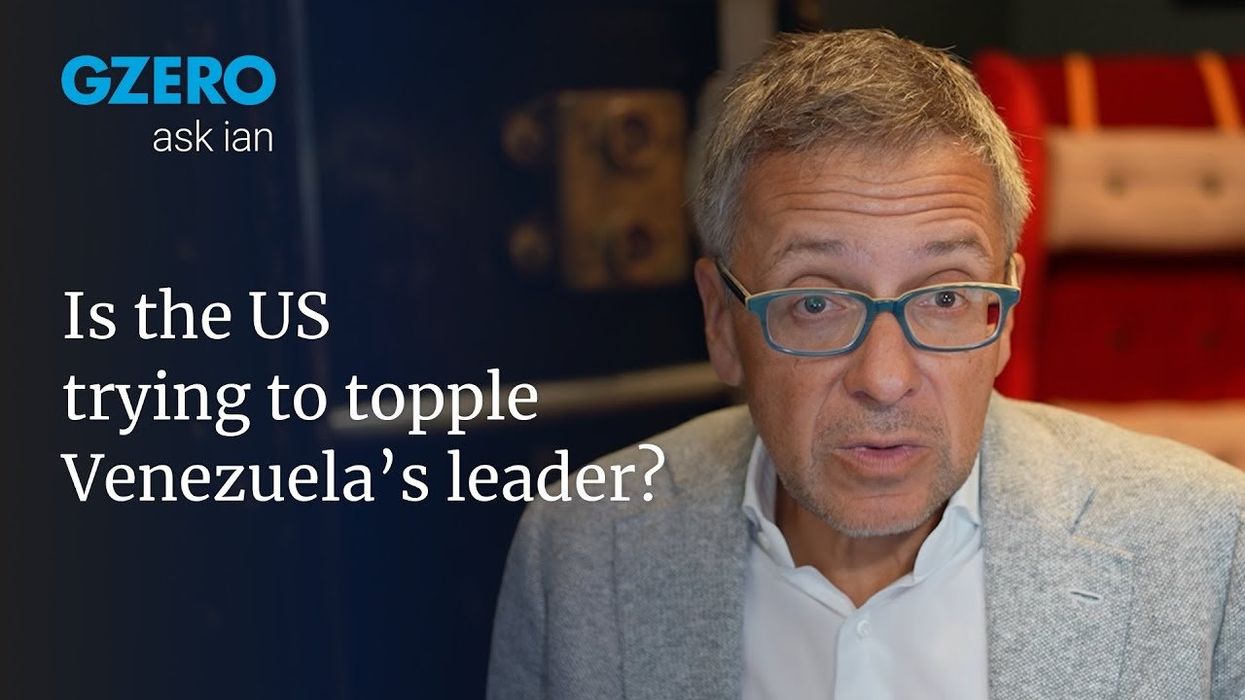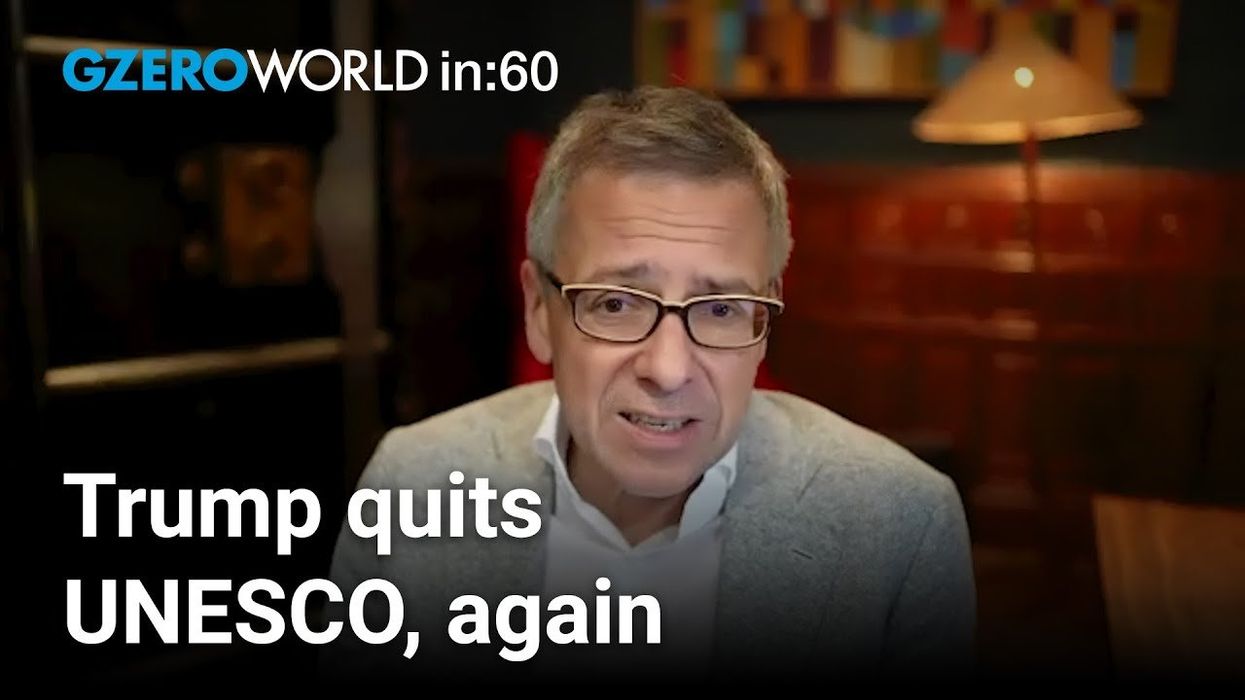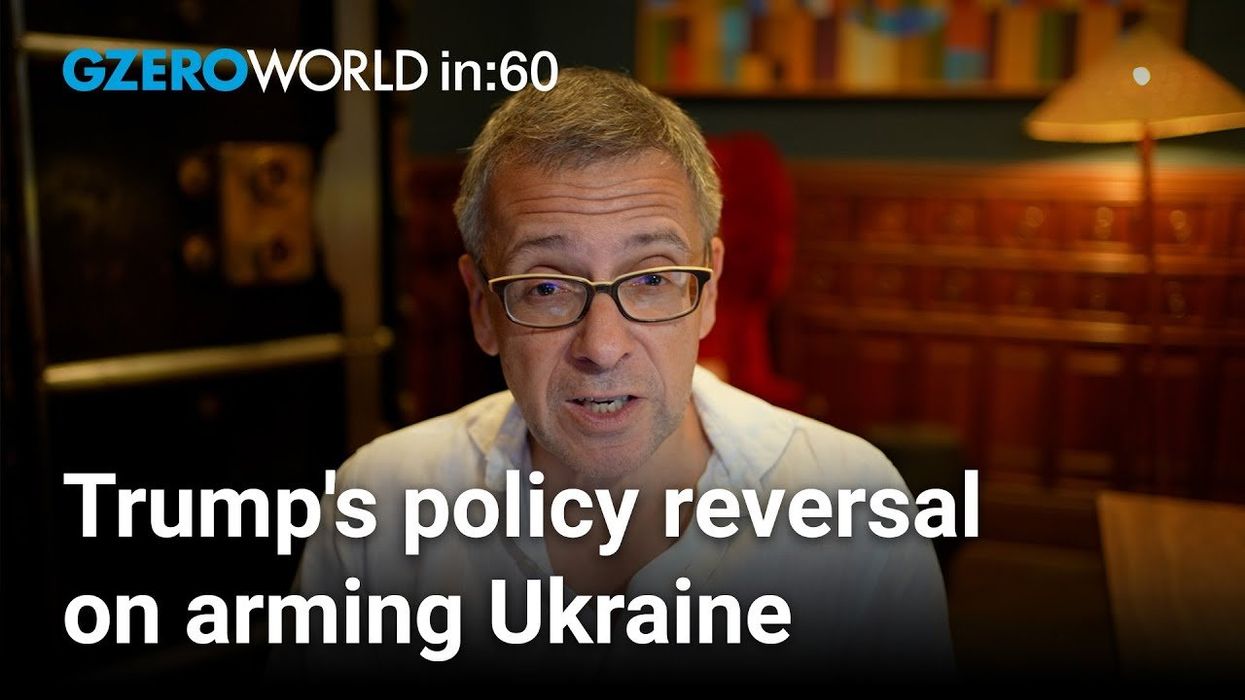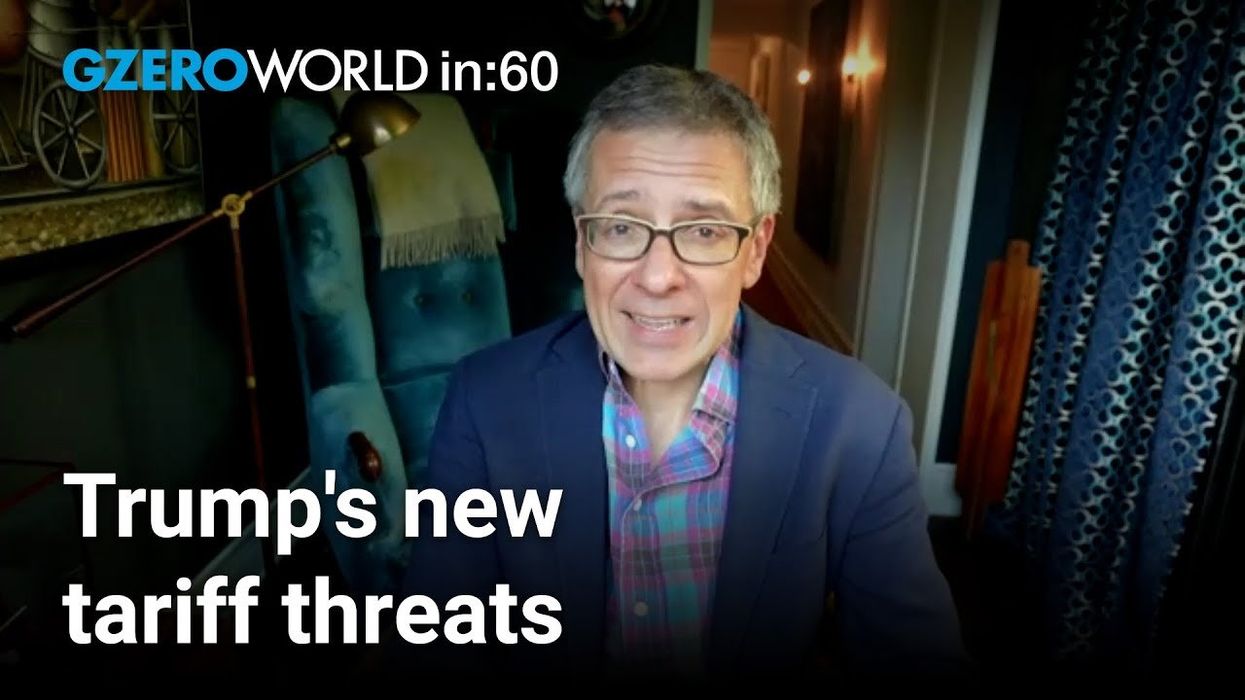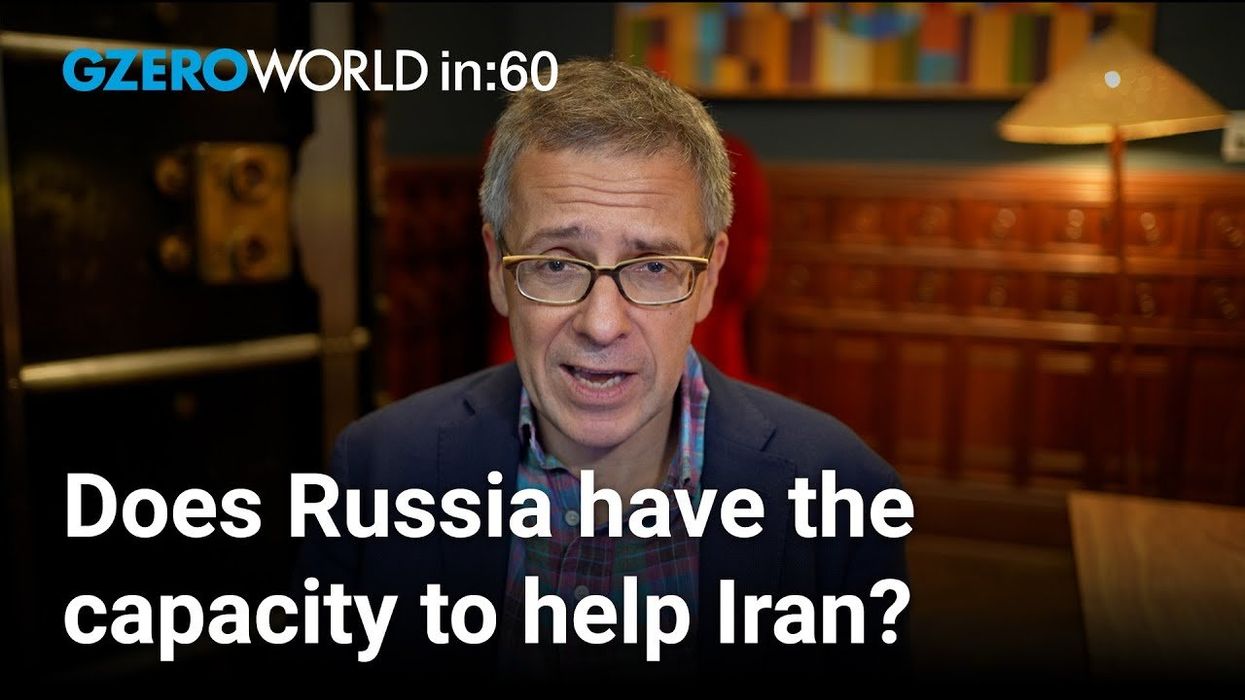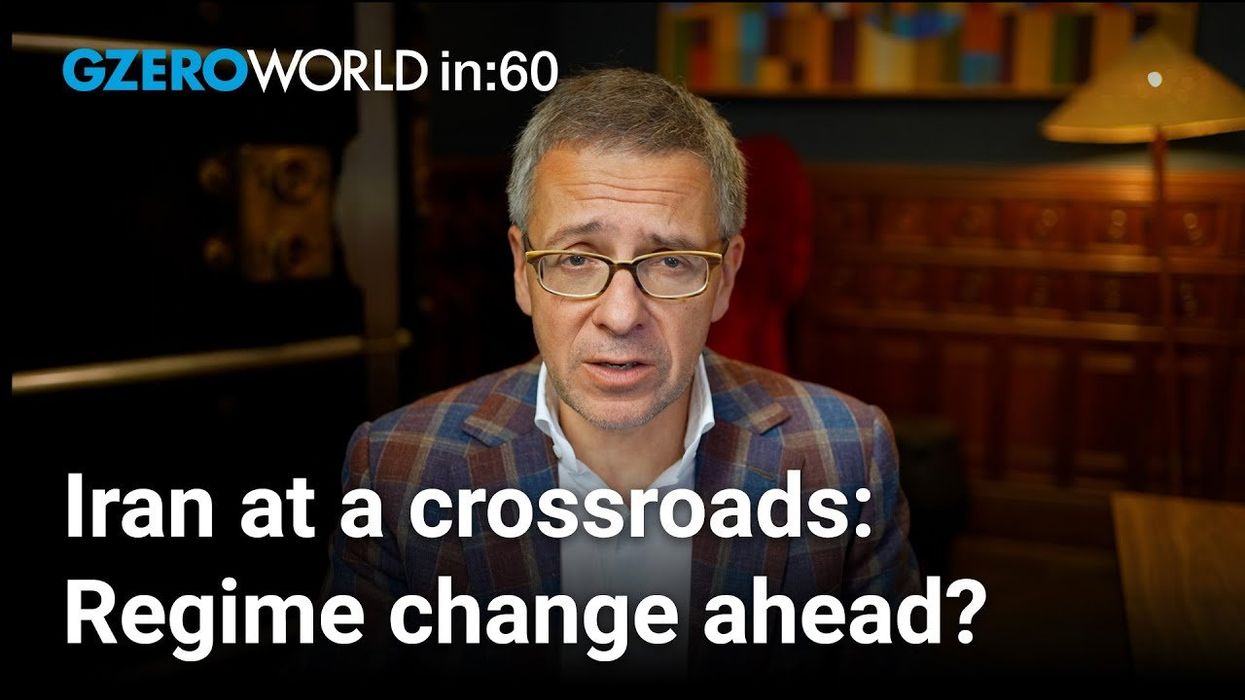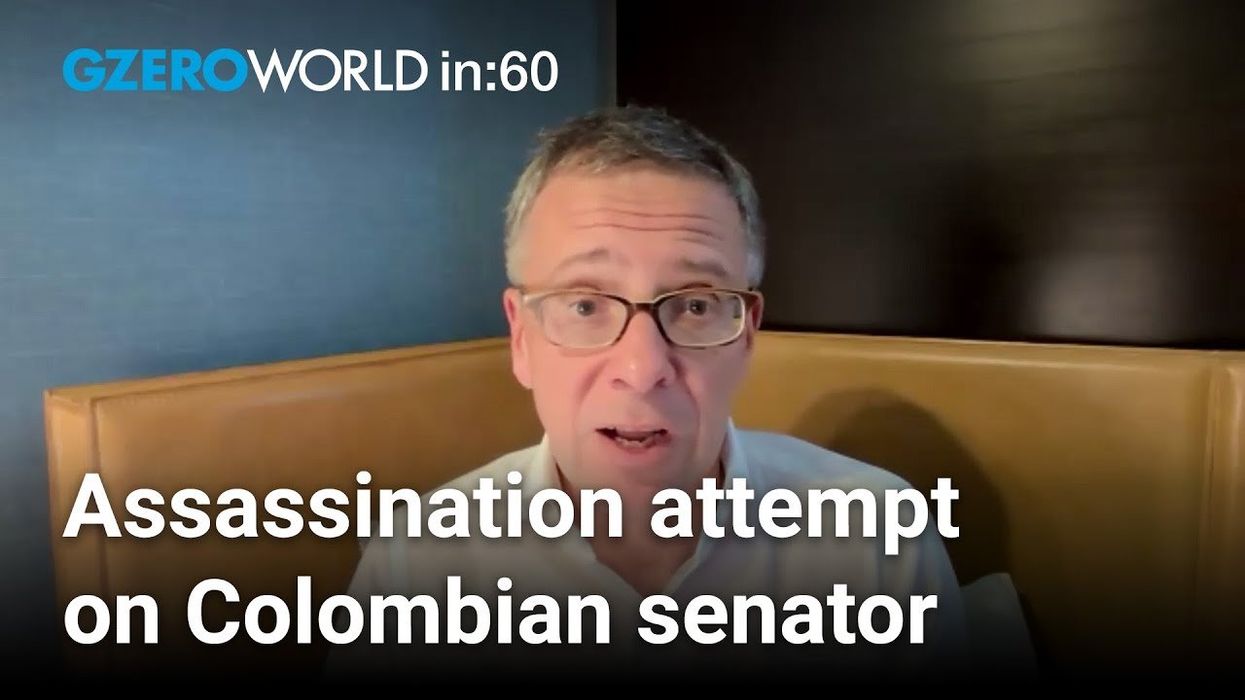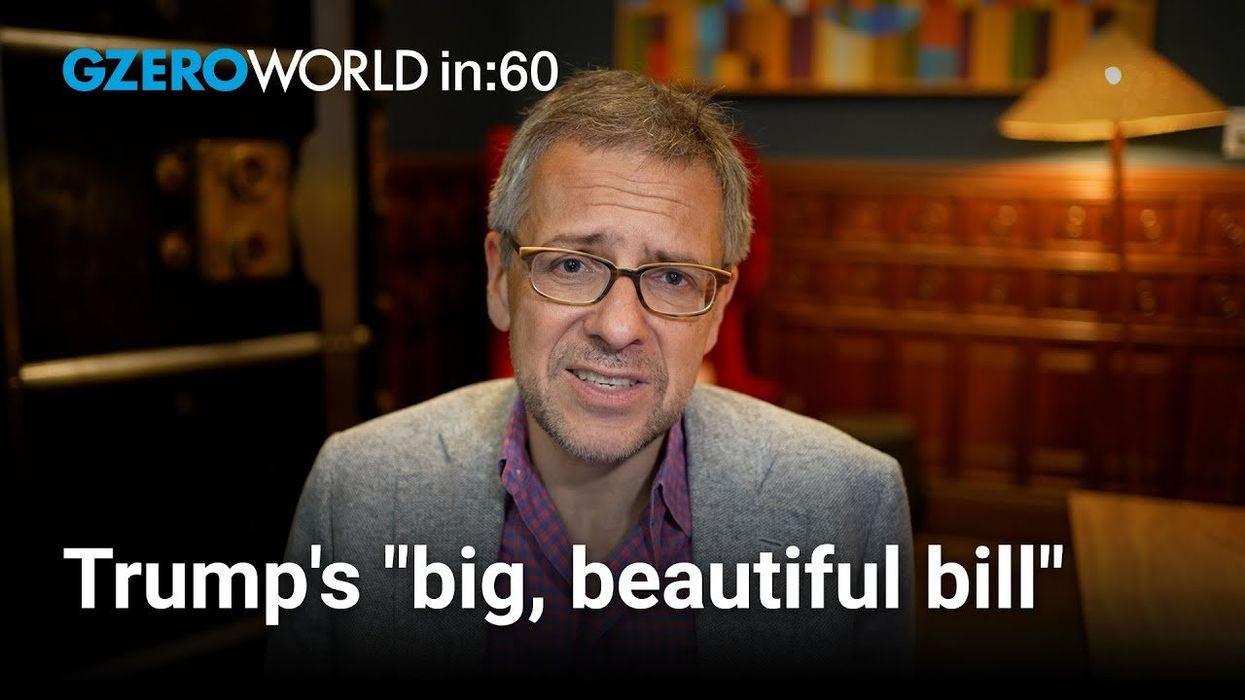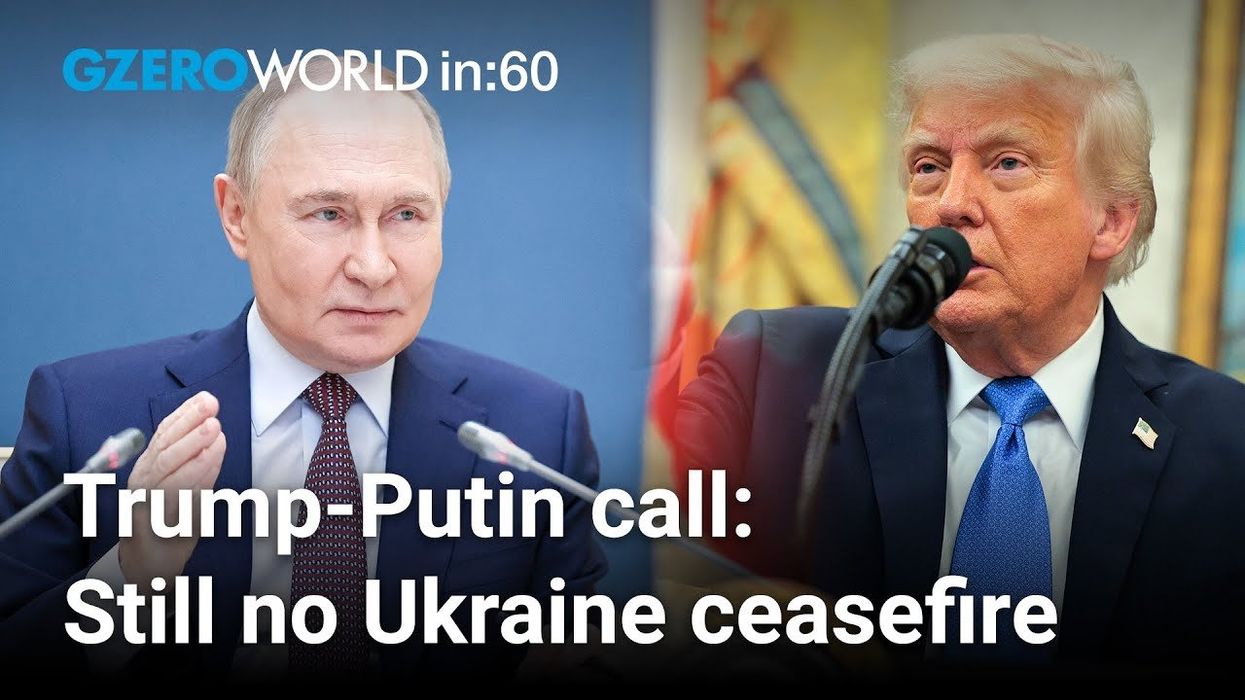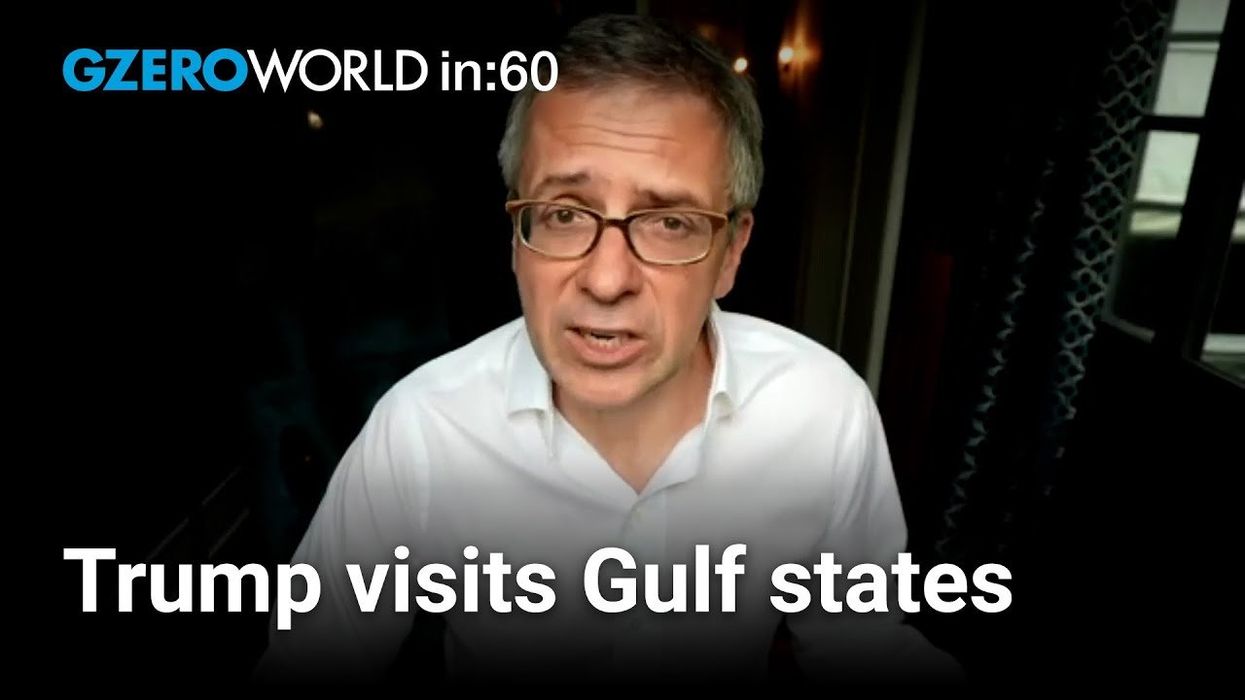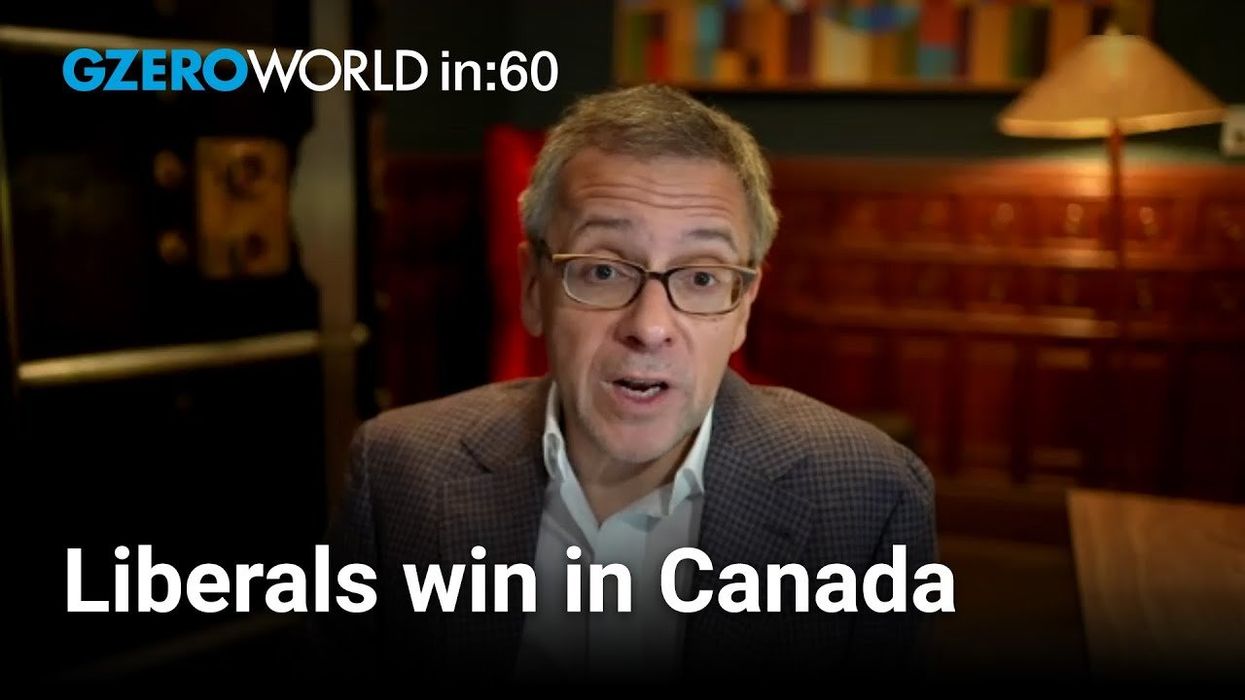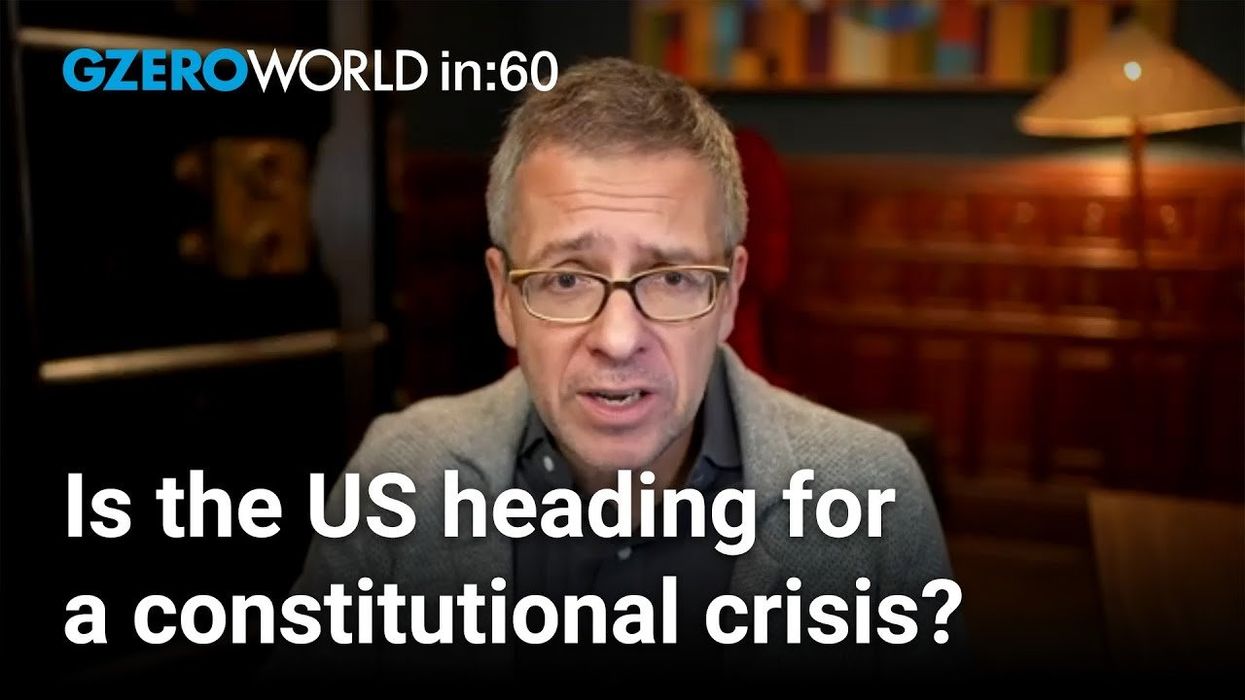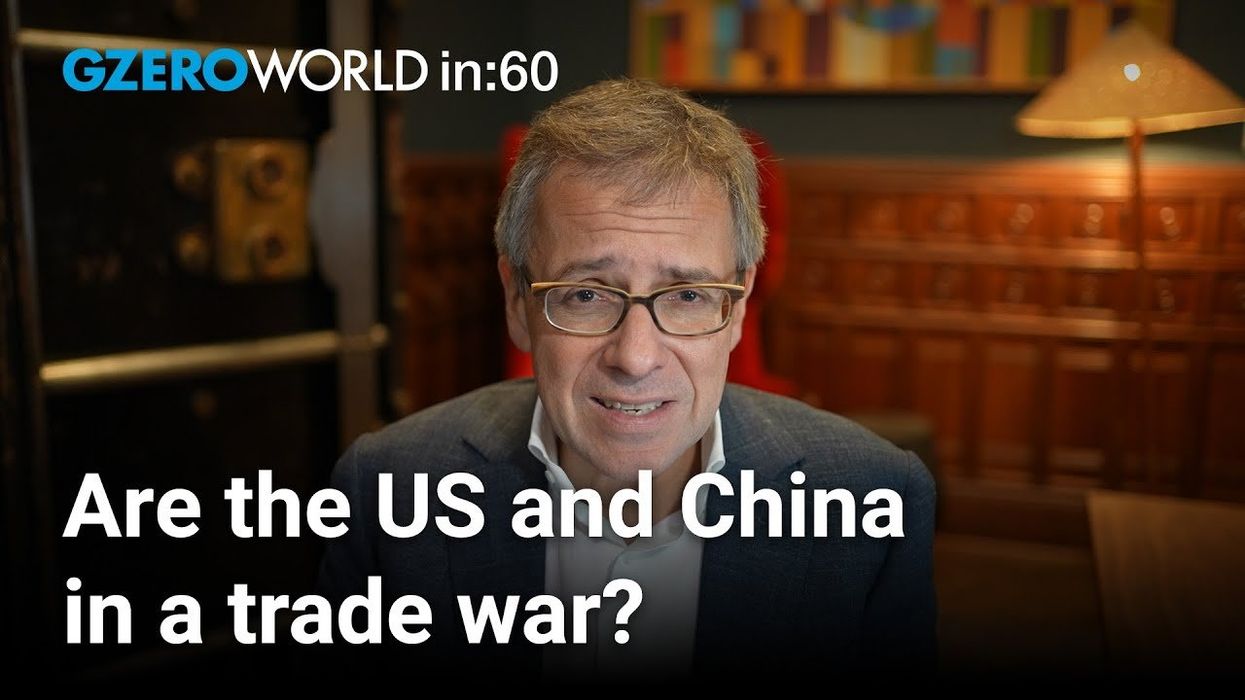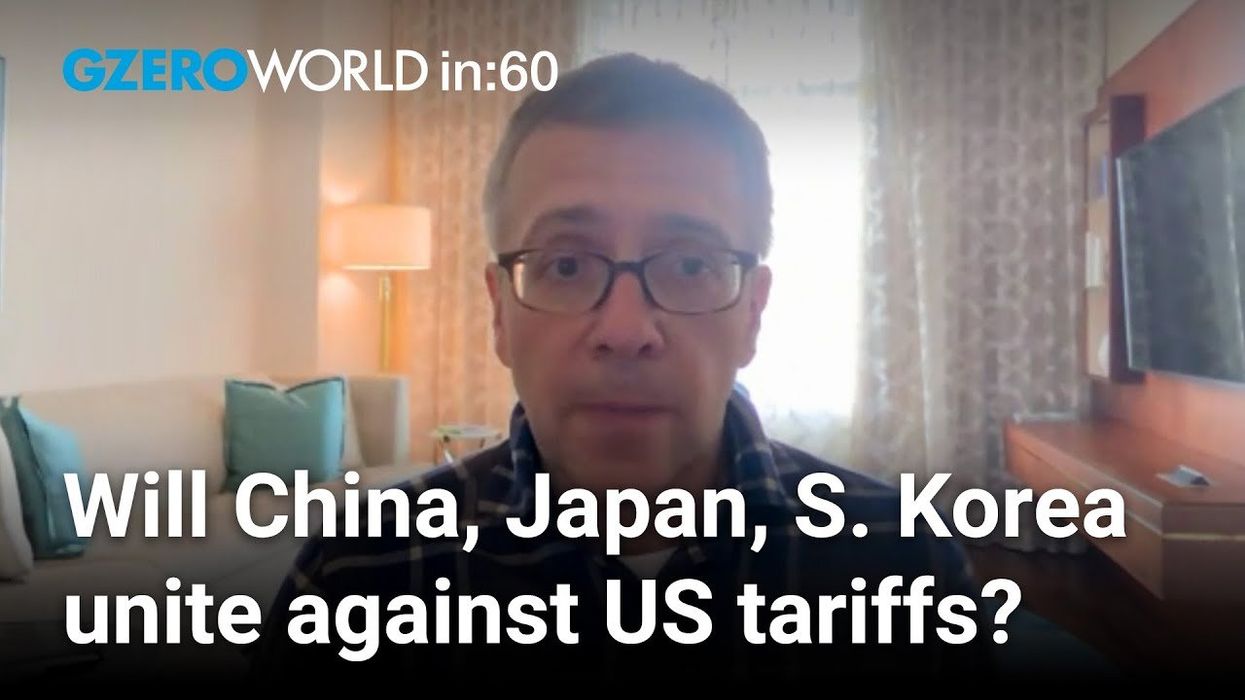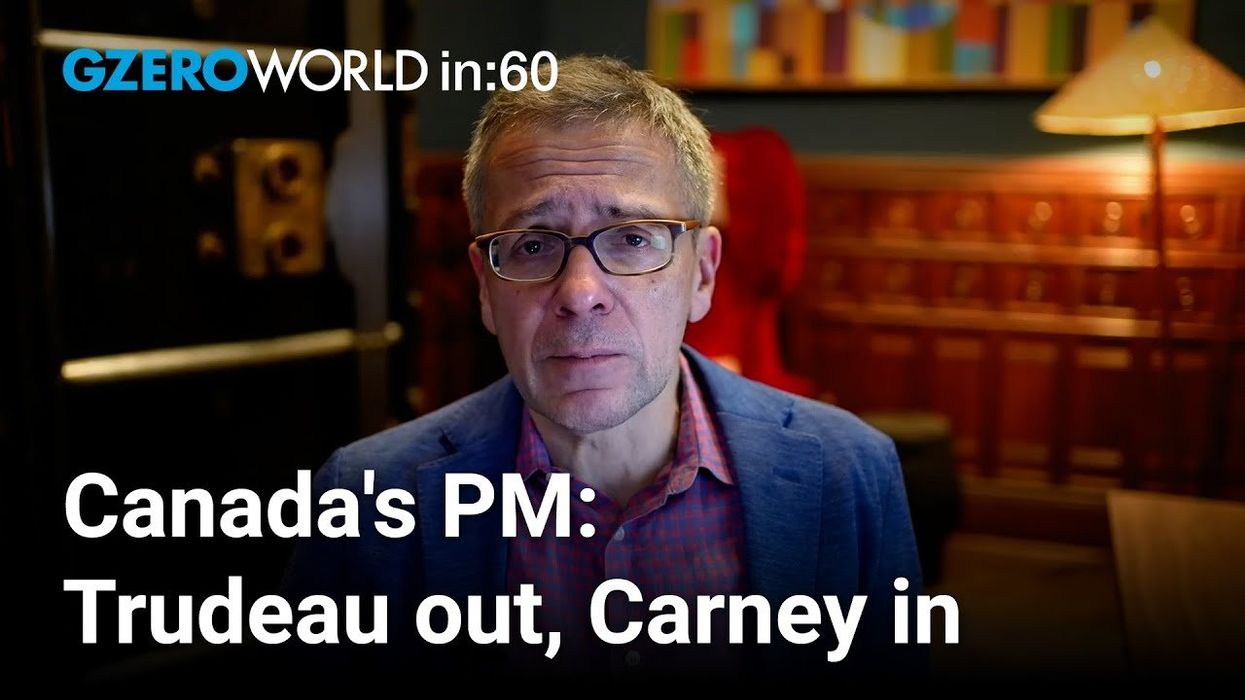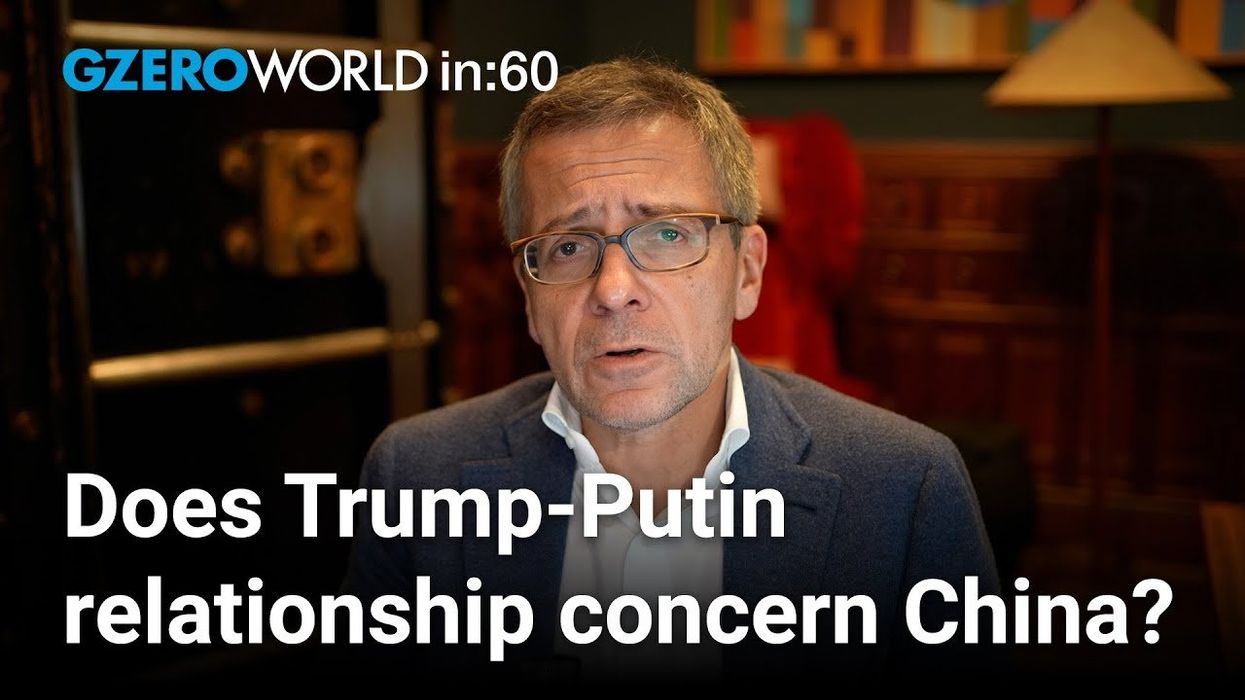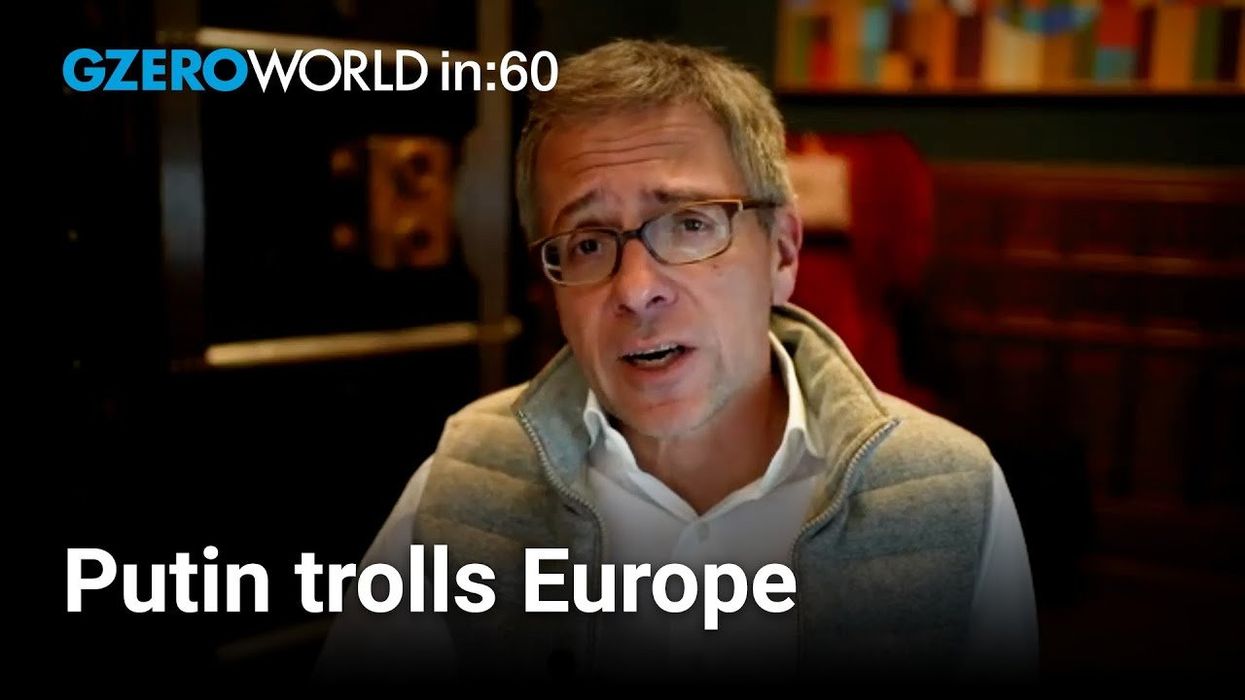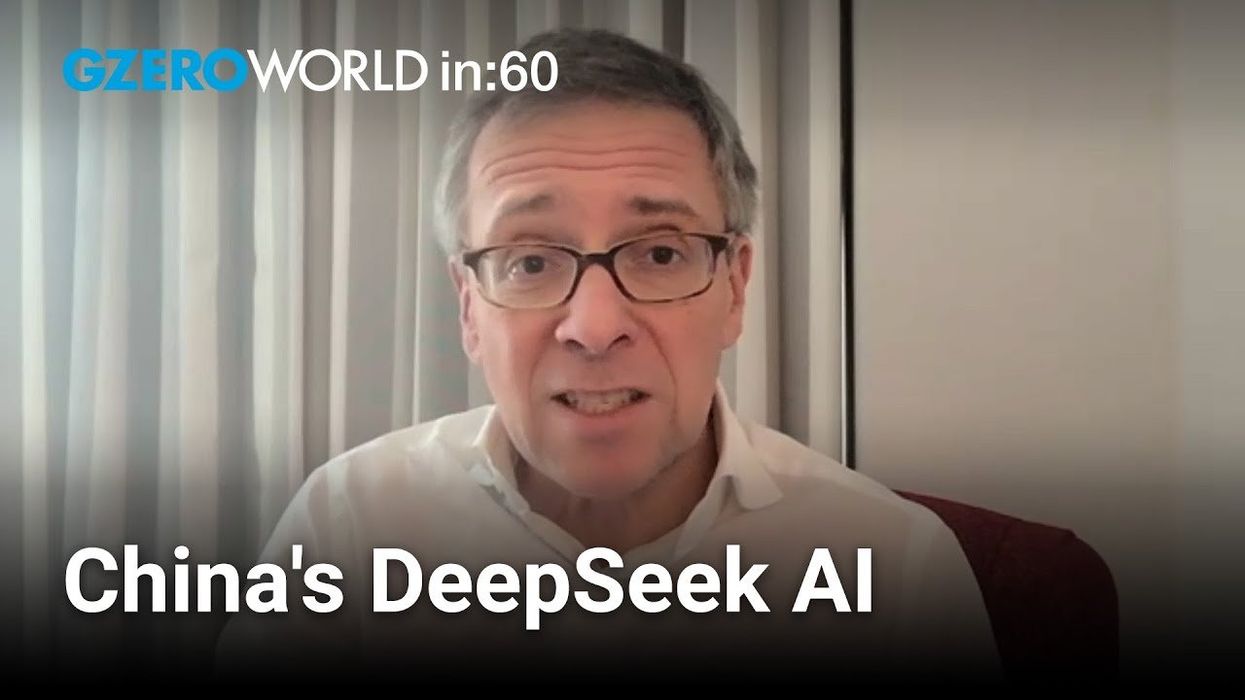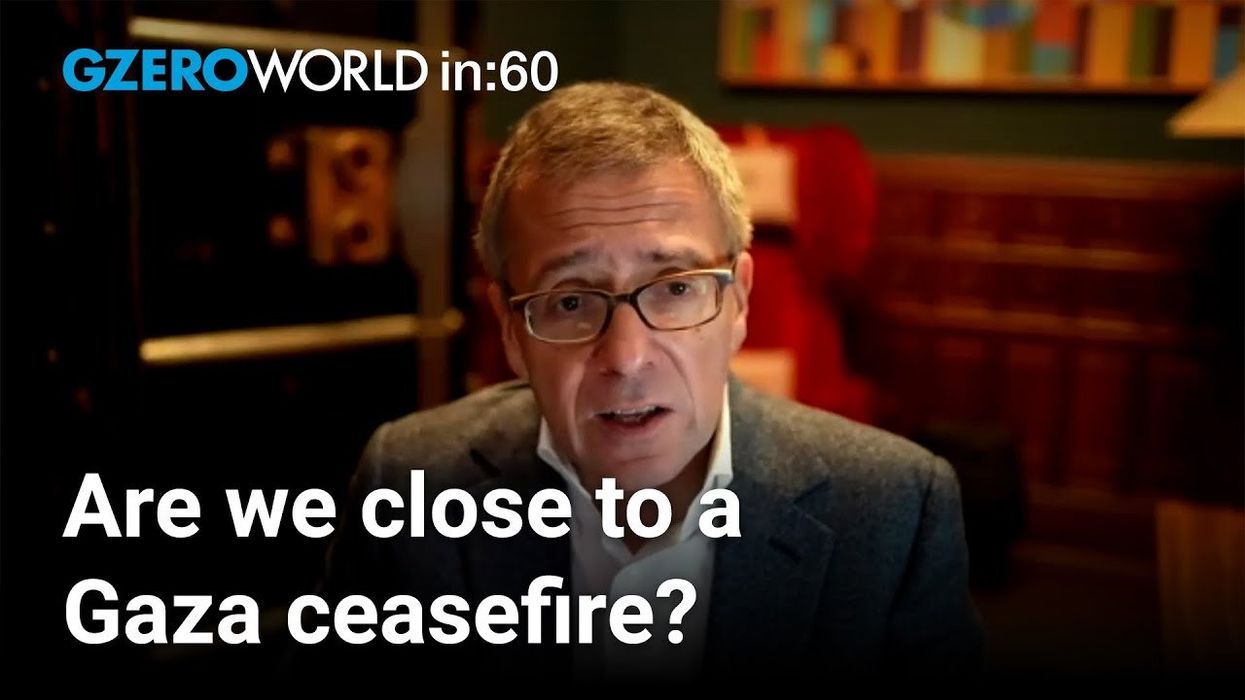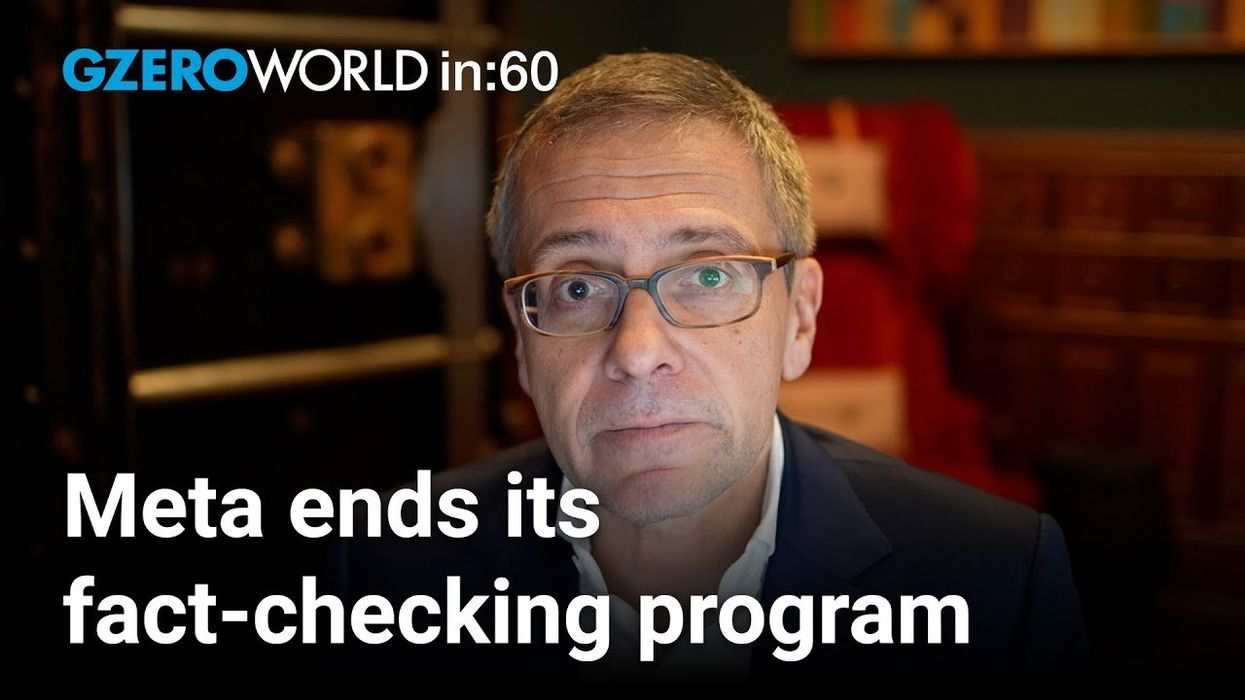VIDEOSGZERO World with Ian BremmerQuick TakePUPPET REGIMEIan ExplainsGZERO ReportsAsk IanGlobal Stage
Site Navigation
Search
Human content,
AI powered search.
Latest Stories
Start your day right!
Get latest updates and insights delivered to your inbox.
Top Risks of 2026
WATCH RECORDING
Ian Bremmer provides his perspective in a bit more than 60 seconds:
First, the W.H.O. says the coronavirus situation is "worsening" worldwide. Where is it getting worse?
Well, still in about a dozen US states where the reproduction number is greater than 1.0. In other words, we have flattened the curve in the United States as a whole. And New York City has a lot fewer, the metro area, has a lot fewer cases than it used to, a lot fewer deaths. But in 12 states across the country, you still actually have significant increases exponentially, though largely from lower numbers of cases. So, there's that. Most of that's in the south. Some of the Midwest. And hopefully won't expand dramatically on the back of all of the protests we've had for the last week and a half.
I'm of two minds there. I mean, on the one hand, most of those people, as you watched on television, are wearing masks and it's outdoors. And the super spreader incidents that we've seen so far are almost all indoors - meat packing, processing facilities and churches and nightclubs in South Korea. But, you know, you listen to Fauci, you listen to others, and the concern is that we're going to see more cases on the back of that. So, if that happens, then US, too.
But mostly coronavirus is getting worse in the developing world, particularly South America, particularly Brazil, Mexico, most other South American countries, and a lot of other countries, too, like in Pakistan, Iran has a major new outbreak now. And these are countries that do not have the money, the political wherewithal, the health care capacity to do enough testing or to really respond with lockdown. So, I mean, the expectation is not only are those numbers going up as we can monitor, but the numbers of cases that are asymptomatic or that have other diseases going along with them and we're never going to know are really cases, is a lot higher, probably two to five times higher than what is reflected in the data right now.
Another question, with calls to defund the police echoing across the United States, what does that actually mean?
Well, number one, it means it's not going to happen because Trump opposes it. And Biden, who is the presumptive Democratic nominee, also opposes it. Now, I mean, I understand that a lot of people that are looking at systemic racism in police departments and all of the abuses of police authority that have happened over the course of the decades, and we're certainly still seeing and seeing very visually on videotape, right now, leads to a very emotive reaction. And defunding police sounds like you're taking away their money and there won't be a police department. And particularly the chair of the Minneapolis council was not very clever in what she had to say about that and provided great soundbites for people that wanted to paint it as if we're going to have anarchy. That's not the case. It's more about demilitarization of the police. It's more about trying to train in ways and provide technical capabilities that would stop from the use of escalation and force in most cases.
It certainly means, it could mean that budgetary priorities are going to change. There's no question about that. But I think the biggest issue is that if you don't change the nature of policing, the police unions continue to be incredibly strong and they really prevent you from taking the kinds of systemic reform that are required to respond to the demands of the population. And I mean, the population that's making those demands, you know, maybe 20 years ago, was primarily the black population in the US. It's not anymore. And what's so interesting is just how much President Trump himself and law and order is not reflected in the way the American population as a whole believes that this response should be treated.
Very few people out there presently support a lock them up and throw away the key. Or you remember when Trump was arguing, "yeah, yeah, put that guy in the paddy wagon. Rough him up a little first," for someone that was shouting and causing mischief in a Trump rally. There are very few Americans that actually support that. There's some, but it's nowhere close to Trump's actual support base of 35%, 40%, maybe even 45&. So, I do think that you're going to see more systemic reform of the police departments across the country. And some of what we've seen in Camden, New Jersey, an experiment I suspect that you're going to see a lot more of both here in my neck of the woods, but also more broadly.
Finally, it's all pandemic and protests in the news cycle. What other global stories should I be paying attention to?
Well, I mean, I certainly think the potential for an emerging market debt crisis, I mean, as the markets in the United States do very well. But the ability of right now, middle income emerging markets to borrow is very, very high. Interest rates are low and they're getting the money they need. It's only the poorest countries that are really squeezed and need the emergency funding right now. I suspect in 12 and six months' time, that squeeze is going to grow. And the potential to have real banking crises that metastasized beyond the emerging markets is real. And we should not in any way feel comfortable just because jobs are coming back in the United States. I'd also say focus on leadership in Europe. The fact that the Germans and Angela Merkel is doing so well right now, not only in terms of response to coronavirus, but in terms of getting relief to southern Europeans that need it and creating a seven year European budget that will get approved in fairly uncontroversial fashion, either in short order or certainly by the end of this year, no one would have expected that a few months ago. That's a pretty big story.
Keep reading...Show less
More from ask ian
Trump, loyalty, and the limits of accountability
December 16, 2025
Notre Dame, politics, and playing by their own rules
December 08, 2025
Trump threatens regime change in Venezuela
December 02, 2025
Is Trump’s trade strategy backfiring abroad?
November 25, 2025
Ian stands in line for a bagel, the internet melts down
November 21, 2025
Could Trump have handled the Epstein issue any worse?
November 17, 2025
Democrats divided over government shutdown deal
November 11, 2025
Zohran Mamdani and America's political future
November 04, 2025
Trump, Xi, and the new US–China standoff
October 14, 2025
US-China AI race: Dueling strategies and potential risks
October 07, 2025
Trump shifts on Russia: From carrots to sticks in Ukraine war
September 30, 2025
Trump’s UN speech: Sovereignty, security, and ending wars
September 23, 2025
Israel attacks and targets Hamas leadership in Qatar
September 10, 2025
US strike on vessel from Venezuela
September 03, 2025
Trump pulls US out of UNESCO, again
July 22, 2025
Trump announces new plan to arm Ukraine
July 15, 2025
Are NATO allies aligned on Iran?
June 24, 2025
Will Iran’s regime survive?
June 18, 2025
Trump-Musk rift over Trump's "big, beautiful bill"
June 04, 2025
What is Trump after in his latest Gulf states tour?
May 13, 2025
Why Mark Carney’s victory won’t heal the US-Canada rift
April 29, 2025
Trump tariff is starting a US-China trade war
April 08, 2025
What if Japan & South Korea sided with China on US tariffs?
April 01, 2025
US travel warnings issued by its closest allies
March 25, 2025
US-Canada trade war helps Mark Carney's election prospects
March 11, 2025
Why Trump won’t break the Putin-Xi alliance
March 04, 2025
Will Trump & Musk punish Brazil over Bolsonaro indictment?
February 19, 2025
Putin trolls Europe about "the master" Trump
February 04, 2025
DeepSeek puts US-China relations on edge
January 30, 2025
Gaza ceasefire likely as Biden and Trump both push
January 14, 2025
Meta scraps fact-checking program: What next?
January 07, 2025
GZERO Series
GZERO Daily: our free newsletter about global politics
Keep up with what’s going on around the world - and why it matters.

